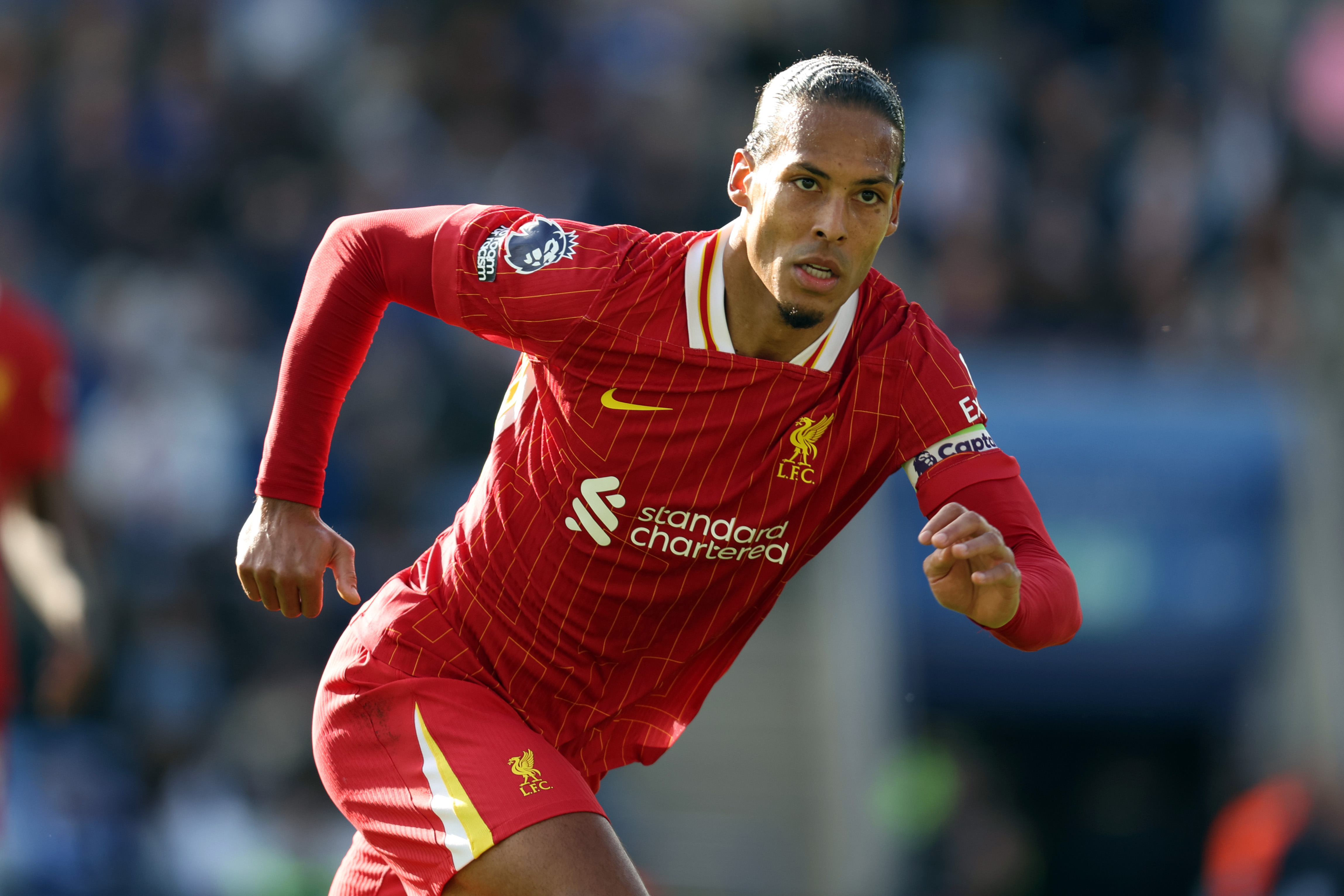20 South American starlets who came to the Premier League...and disappeared without a trace
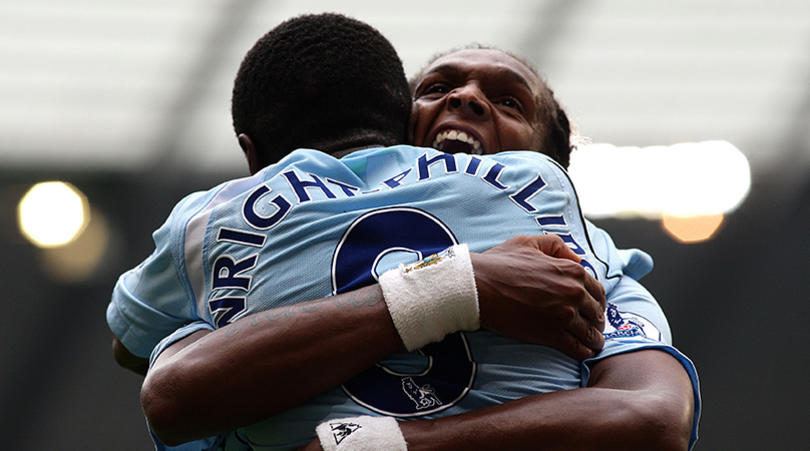
Gone and forgotten
There are certain footballers who strike a distant chord somewhere in the back of your mind, provoking a reaction along the lines of: “Oh, yeah... completely forgotten about him.”
Prepare to experience that feeling several times over. The following selection of players arrived on British shores with high hopes for their fledgling careers, but for a number of different reasons it wasn’t to be. From failing to adapt, to injury problems, to off-field fallouts, these South American talents couldn’t make it work in the Premier League...
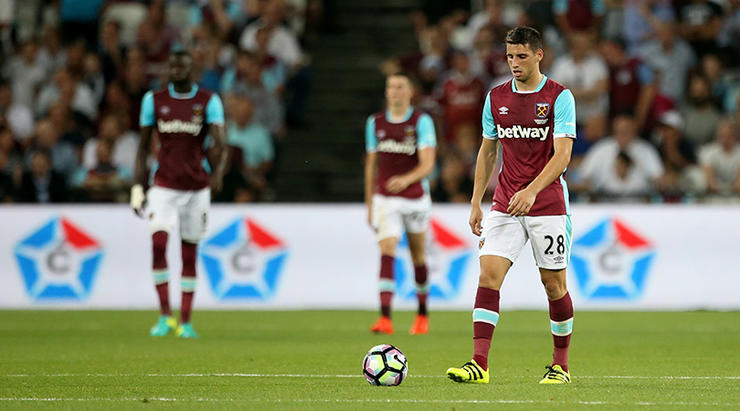
Jonathan Calleri (West Ham)
Calleri joined West Ham on loan from the peculiar Deportivo Maldonado, having scored 39 goals in 90 games in Argentina and Brazil. He added another for Argentina at the 2016 Olympics and was regarded as an inventive solution to West Ham’s striker problem.
The club’s owners had wasted millions on around 40 different forwards to no avail before Calleri’s arrival – and this proved no different.
Calleri scored just once in his first 10 appearances. He wanted to end his loan early in January, so Carlos Tevez was enlisted to give him a pep talk. Calleri agreed to stay, but the goals failed to materialise and after eight more appearances he was gone. Since then he’s popped up on loan in Spain at Las Palmas and Alaves.
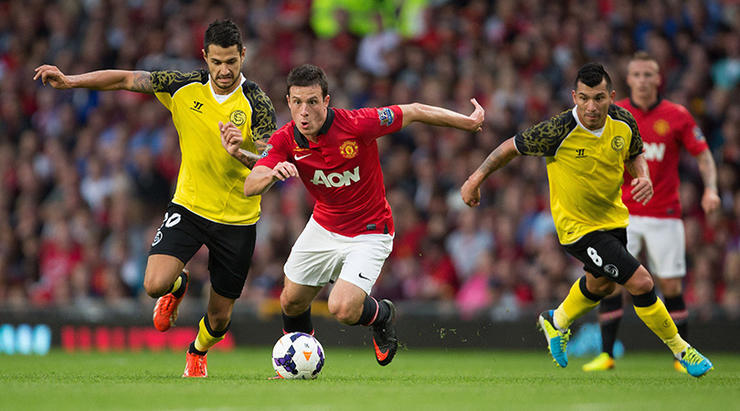
Angelo Henriquez (Manchester United)
Signed from Universidad de Chile for just £4 million, Henriquez had scored 15 goals in 28 games in his hometown. Henriquez was no Chicharito, though, lacking the strength and instinctiveness that made the Mexican such a success at Old Trafford.
Sir Alex Ferguson sent the Chilean on loan to Wigan in 2012/13 to toughen him up, but it didn’t work. Devoid of confidence, the youngster played just four Premier League games, scoring once in a home defeat to Sunderland.
Another lacklustre loan at Real Zaragoza followed, before Henriquez finally found his touch in Europe on loan at Dinamo Zagreb, who made the move permanent in 2015. Since then he’s won a Copa America with Chile and is now back at Universidad. He's still just 24.
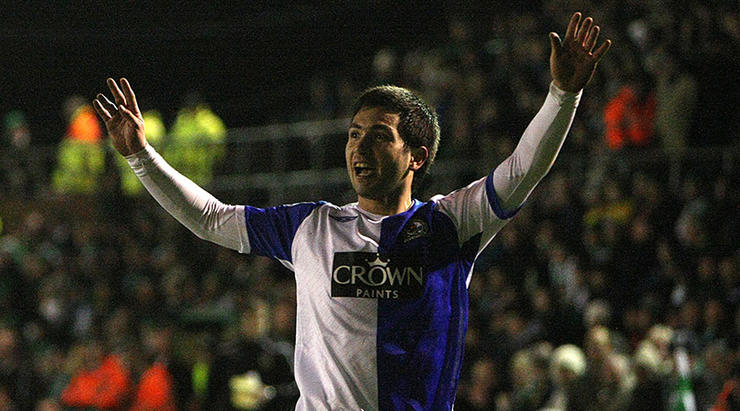
Carlos Villanueva (Blackburn)
Signed from Audax Italiano on loan, Chile’s reigning player of the year Villanueva was set to be a key man for Paul Ince at Ewood Park.
It started well with a goal and assist on his debut against Grimsby in the League Cup, but then Villanueva became the only person in the country aged over 10 (we assume) to contract chicken pox.
Forced to wait until mid-September for his Premier League bow, Villanueva eventually came off the bench against Fulham and helped set up the game’s winning goal. However, when Ince was sacked and replaced by the more direct Sam Allardyce, Villanueva’s days were numbered. He left the following summer for Al Shabab in the Middle East and has since moved on to Al-Ittihad.
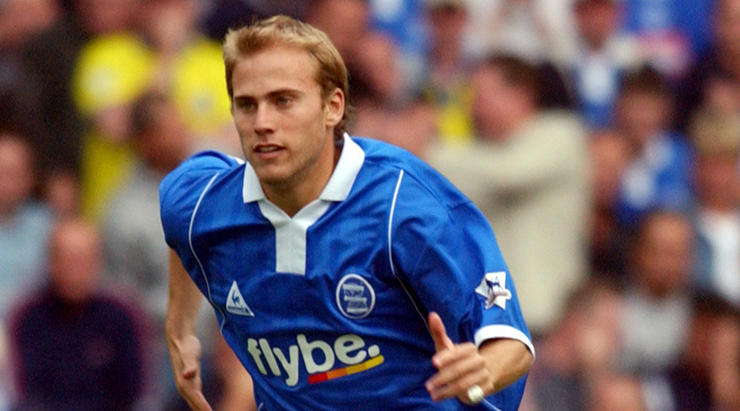
Luciano Figueroa (Birmingham)
In July 2003, Birmingham splurged £2.5 million on a young Argentine striker dubbed the next Gabriel Batistuta. Figueroa had just finished top scorer in the Clausura with 17 goals in 19 games for Rosario.
Despite having had to fight for his signature, Birmingham seemed hesitant to play the 22-year-old – he made just one Premier League appearance and one in the League Cup. Though Figueroa impressed for the reserves, manager Steve Bruce felt the striker lacked the necessary physicality and he was released after just one season.
Figueroa earned 15 caps and scored nine goals for Argentina during a nomadic career that took him through Spain, Argentina, Italy, Greece, Ecuador and Malaysia, where he’s now manager of Johor Darul Ta’zim, one of his former clubs.
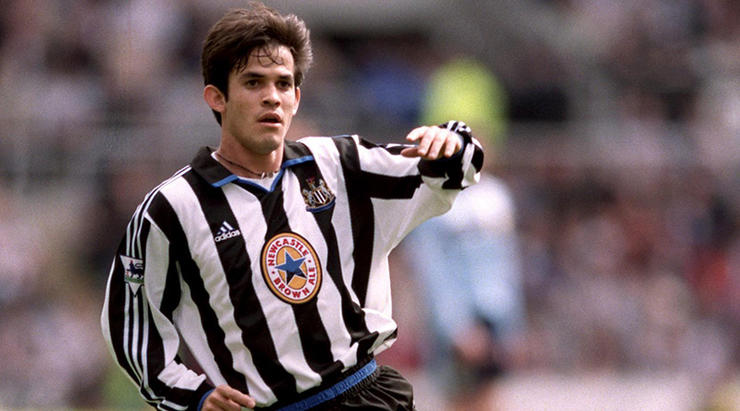
Diego Gavilan (Newcastle)
Sir Bobby Robson didn’t make many mistakes, but the signing of Gavilan was one. The first Paraguayan to play in the English top-flight, Gavilan was just 19 when he signed from Cerro Porteno in January 2000.
Nicknamed ‘Pompero’ in Paraguay, which roughly translates as “running like the wind”, the midfielder had pace to burn but rarely used it. Despite a solid debut in the Tyne-Wear derby, Gavilan struggled and Newcastle fans had to wait until April to see his first goal for the club.
He was loaned out to Tecos, Internacional and Udinese in the hope he would improve, before Newcastle eventually cut their losses in 2004. He was most recently with Independiente CG back in Paraguay, where he retired in 2011 aged just 30.
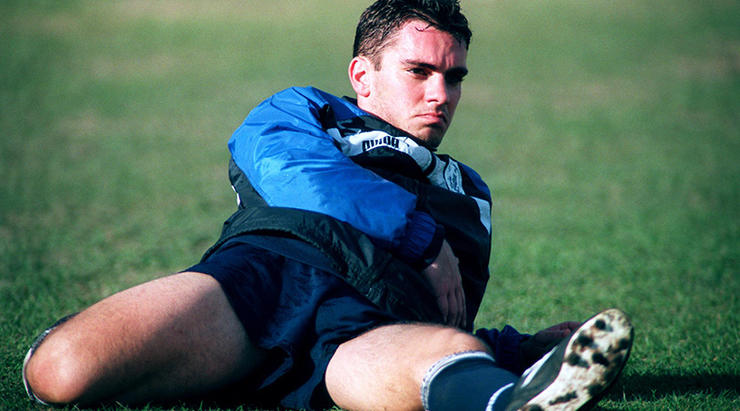
Juan Cobian (Sheffield Wednesday)
The first Argentine to play in the Premier League along with Derby’s Horacio Carbonari (both started on the opening day), Cobian joined Sheffield Wednesday from Boca Juniors in 1998. Primarily a right-back, he started seven of the first eight league games at his new club.
However, it was all downhill from there. A disastrous outing in a 4-0 defeat to Middlesbrough preceded a similarly forgettable display in the League Cup, where his poor backpass gifted Cambridge United’s Trevor Benjamin the only goal.
He left for Charlton at the end of the season but never played for the Addicks, moving on to Aberdeen, Swindon and lowly CD Linares in Spain before returning to his home country.
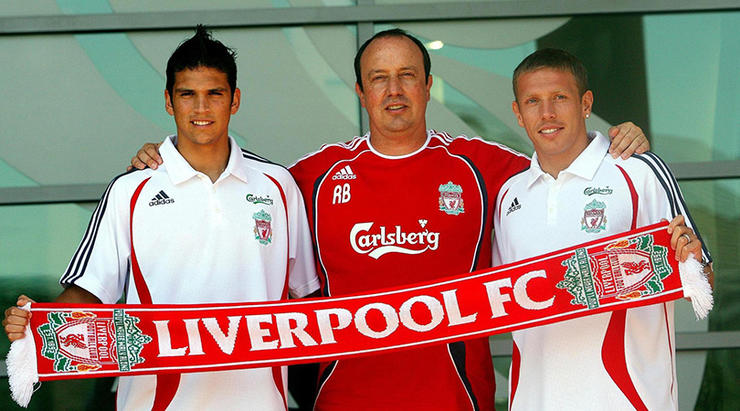
Mark Gonzalez (Liverpool)
Gonzalez overcame work permit issues and a cruciate knee ligament injury to land a dream move to Liverpool from Albacete in 2006.
Brought in to provide cover and competition for the injury-prone Harry Kewell, Gonzalez began his Anfield spell with a Champions League winner in a qualifier against Maccabi Haifa.
He proved no great stand-in, though, and Rafa Benitez cut his losses after just one season (albeit one in which he made 36 appearances). Sold to Real Betis, the Chilean ended up at CSKA Moscow and spent five years in Russia before returning to his first club Universidad Catolica. He’s still playing in Chile now, aged 34, for Deportes Magallanes.
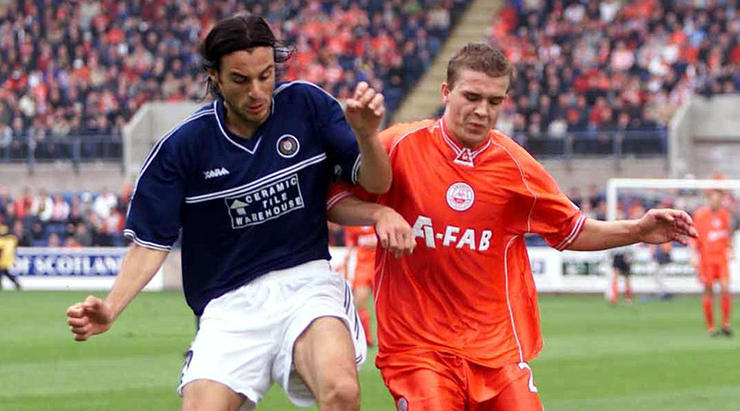
Walter Del Rio (Crystal Palace)
A famous bit of Terry Venables wheeler-dealing resulted in Boca Juniors defender Walter del Rio arriving at Selhurst Park in the summer of 1998. Bought for just £187,500, Del Rio – or “Witcha” as he was known in Argentina – was considered a player with massive potential.
In a season where Palace recruited the misfiring Michele Padovano and portly Tomas Brolin, however, Del Rio stood out as the club’s worst signing. The Eagles were hammered 4-0 by Barnsley on a nightmare debut, and Del Rio didn’t start another game for the club.
Two substitute appearances followed before Venables was replaced by Steve Coppell. Frozen out of the first team by March, Del Rio refused a free transfer, continuing to train with the reserves. He eventually left for Dundee in July 2000, linking up with Claudio Caniggia.
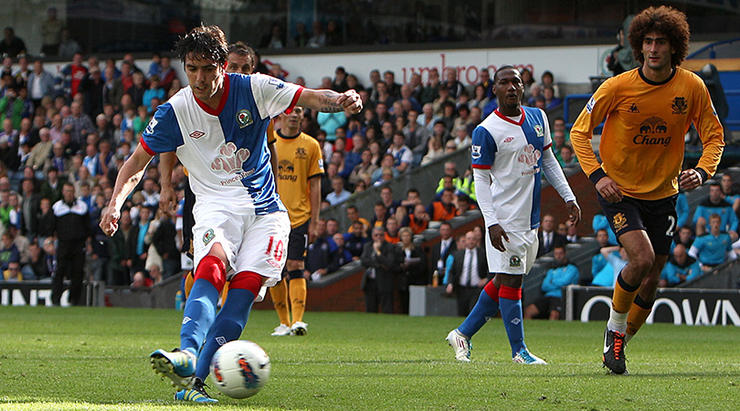
Mauro Formica (Blackburn)
In January 2011, Blackburn were linked with a surprise swoop for the mercurial Juan Roman Riquelme. In the end, Rovers fans had to settle for 22-year-old Formica.
Signed for £4 million from Newell’s Old Boys on deadline day, the playmaker was talked up by new boss Steve Kean as a “young [Gabriel] Batistuta” – despite the fact he was a playmaker rather than a striker.
He marked his Premier League debut against Wolves in August 2011 with a goal. But he wasn’t happy with life in Blackburn (really, who could blame him at that time?) and by January 2012 wanted out. Formica, now 30, stuck around long enough to see the club relegated and went on to play for Palermo, Cruz Azul and Newell’s Old Boys (again).
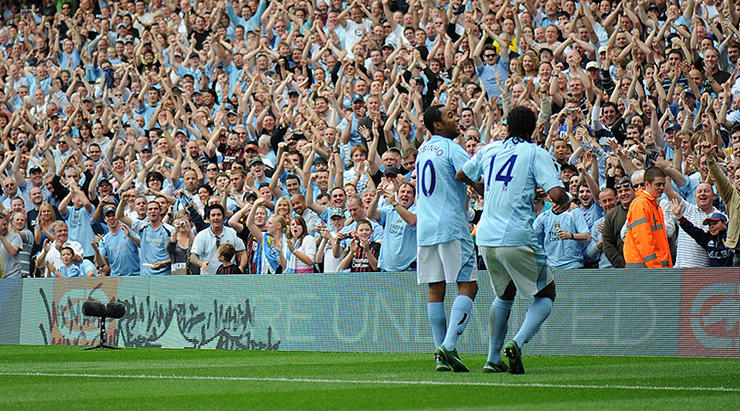
Jo (Manchester City)
Jo was Mark Hughes’ first signing as City boss and arrived for a then-club record fee of £19 million after scoring for fun at CSKA Moscow.
A bright start wasn’t sustained and after just nine league games of 2008/09 he was sent on loan to Everton. Jo fared better at Goodison, scoring five times in 12 matches, but a second season-long loan in 2009/10 wasn’t so successful; an unsanctioned trip back to Brazil over the busy Christmas period ended hopes of a permanent deal.
Jo eventually returned to Brazil where he rediscovered his form, so much that he was selected for the Seleção's ill-fated 2014 World Cup campaign. Stints in the UAE and China followed, before a prolific season at Corinthians and one final fling in Japan with Nagoya Grampus.
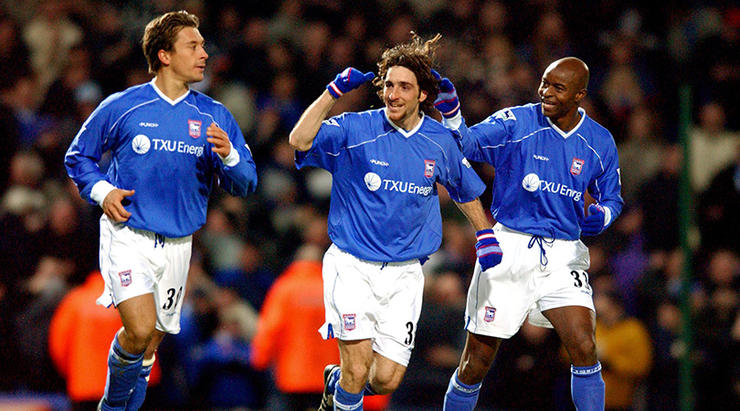
Sixto Peralta (Ipswich)
Inter Milan brought Peralta to Europe from Racing Club in 2000 after the midfielder impressed with Argentina at the 1999 FIFA World Youth Championship. But despite such promise, he found his route to the first team blocked by a glut of stars.
His fortunes changed after he moved to Ipswich in the in 2000. Finally given regular first-team football, Peralta scored five goals in 29 appearances, but they weren’t enough to save the Tractor Boys from the drop.
Peralta never got to play for Inter, moving on for spells in Mexico and Argentina before settling in Europe with Cluj. Peralta won three league titles and three Romanian Cups with the club, eventually retiring at Chile’s Universidad de Concepcion in 2015.
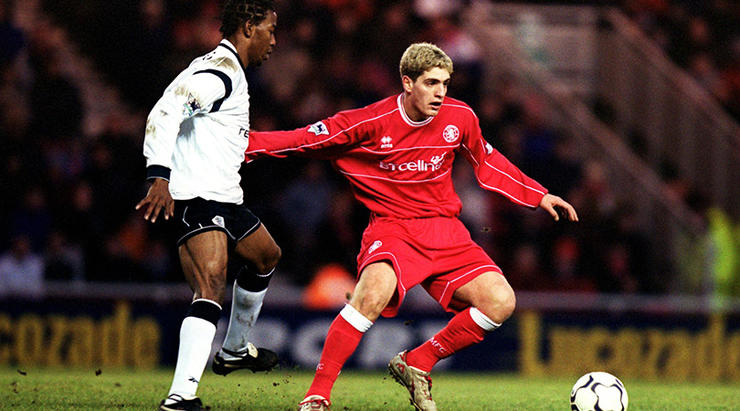
Carlos Marinelli (Middlesbrough)
Middlesbrough paid Boca Juniors £1.5 million for a 17-year-old Marinelli in 1999, but Boro fans had to wait until Boxing Day to see the attacking midfielder in action. A series of ankle injuries the following year restricted him to 13 appearances, meaning the pressure was on by the 2001/02 campaign. Bbut Marinelli started well, scoring his first two goals for the club in a 5-1 win over Derby.
However, it didn’t improve from there and the Argentine was soon on his way out of the Riverside. Marinelli lasted just three games back at Boca before a fallout led him to Racing Club. Stints in Italy, Portugal, the USA, Colombia, Argentina, Hungary and Peru followed, before injury forced his retirement aged just 32.
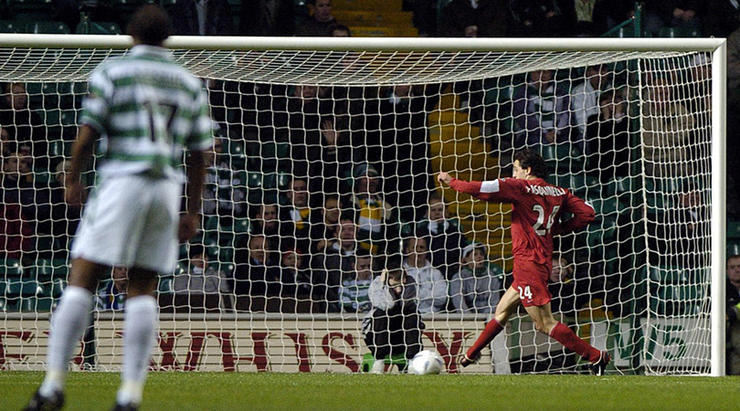
Fernando Pasquinelli (Leicester)
Leicester’s first Argentine was brought in by Martin O’Neill from Boca Juniors in 2000 as part of a loan deal that contained an option to buy the teenage striker. It didn’t take long for O’Neill to decide he wouldn’t be triggering it, though – Pasquinelli never even played for the Foxes.
He was soon released and returned to Boca, but still couldn’t get a game and moved on to Temperley. His stint at Leicester hadn’t put him off the UK: the striker made a surprise return via Livingston and then Aberdeen, where he managed to get some game time for both clubs.
Eventually released by the Dons following a long-term injury lay-off, Pasquinelli appeared sporadically for a series of South American clubs before retiring, aged 30, in 2010.
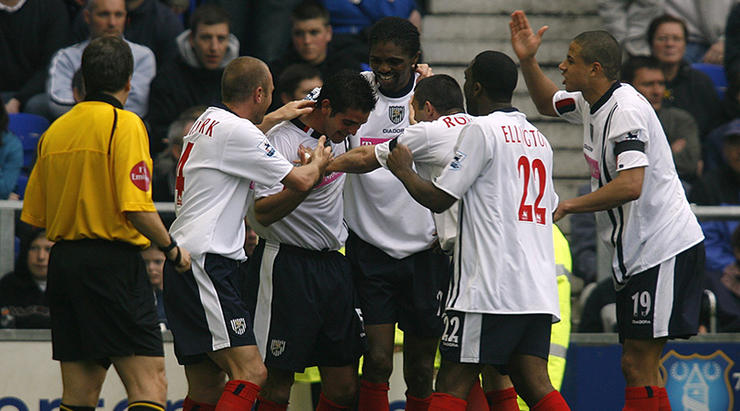
Williams Martinez (West Brom)
Defender Martinez arrived at The Hawthorns in January 2006 on the recommendation of Uruguay great Daniel Fonseca. Captain at previous club Sporting Defensor, it seemed that West Brom were getting a bargain with the option to make his loan permanent for just £2 million.
His first appearance couldn’t have gone much worse. Subbed on against Fulham with the Baggies 2-0 down, Martinez failed to shore things up as they lost 6-1. He had to wait until May for his first start, scoring to help Bryan Robson’s team go 2-0 up against Everton, but then gifting the Toffees a late penalty which levelled the scores.
West Brom were relegated and Martinez moved on for stints in France with Reims and Valenciennes, before returning to South America for good.
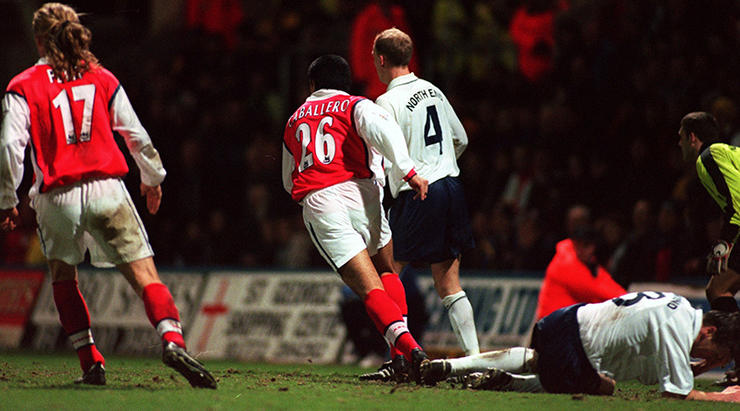
Fabian Caballero (Arsenal)
Caballero, or ‘Tyson’ as he was known, joined Arsenal in October 1998 on loan from Cerro Porteno in Paraguay. He went on to make just one Premier League appearance for the Gunners and another in the FA Cup, where he assisted Emmanuel Petit in a 4-1 victory over Preston.
Tyson fared better for the reserves, scoring eight goals in 16 matches. They weren’t enough to earn him a permanent deal, though, and the striker departed for Sol de America.
The Paraguayan did return to the UK with Dundee, where he scored 27 goals in 111 games before short stints with (deep breath) Olimpia Asuncion, Tacuary, Daejeon Citizen, Alki, Provincial Osorno, Panachaiki, Nacional Asuncion, Municipal, Tacuary, Sportivo Ameliano and Deportivo Recoleta before retirement.
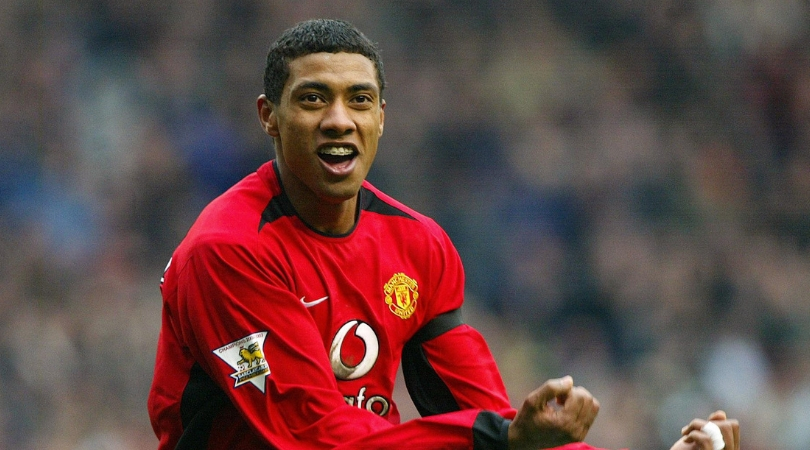
Kleberson (Manchester United)
One of the most infamous examples of a badly judged post-World Cup signing, Kleberson arrived at Old Trafford having just helped Brazil to glory in South Korea and Japan.
Seen as the replacement for Juan Sebastian Veron at United, the midfielder arrived at the same time as famous flop Eric Djemba-Djemba in a forgettable summer of business for the Salford hierarchy.
He scored two goals in two largely disappointing seasons in England before joining Turkish side Besiktas. The final decade of Kleberson’s career took him from Brazil to the USA, ending in the second tier of American football (NASL) with Indy Eleven and Fort Lauderdale strikers. He now coaches the Under-12 side for MLS outfit Philadelphia Union.
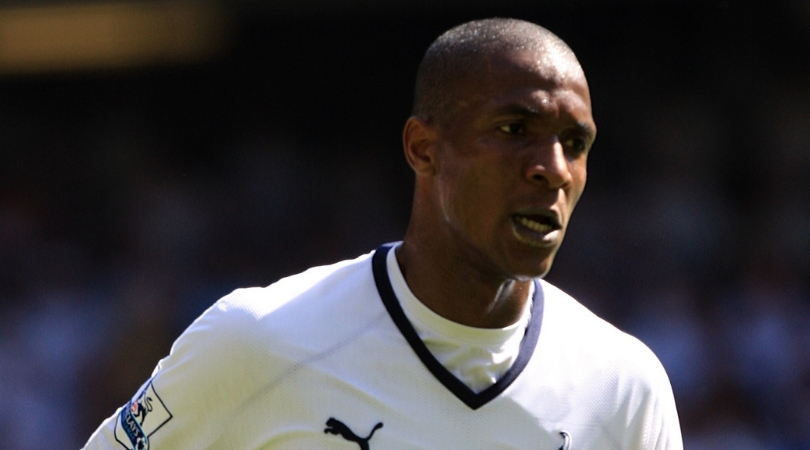
Gilberto (Tottenham)
The archetypal Brazilian full-back, Gilberto wasn’t afraid of bombing up the flank to support the attack during four successful years at Hertha Berlin that landed him a move to Juande Ramos’ Spurs.
However, his defensive ineptitude was soon exposed. On his debut, against PSV in the UEFA Cup, he was substituted at half-time after committing an error that ultimately cost Tottenham the game.
Ramos insisted the Brazilian was hooked because he was still struggling with injury, but things didn’t improve much as Gilberto made just three appearances in the 2008/09 season. He retreated to Brazil after a forgettable season-and-a-half in north London, returning for a second spell at Cruzeiro before seeing out his playing days with Vitoria and America.

Afonso Alves (Middlesbrough)
Alves looked to be a good piece of business for Boro on his arrival in January 2008 after a prolific spell in the Netherlands. In his first season at Heerenveen, he became the third Brazilian to finish as Eredivisie top scorer. The others? Ronaldo and Romario.
Sadly for the Brazilian, and the Riverside faithful, he never translated that form to the Premier League. Fans had to wait until April to see him find the net.
He did show promise with a final day hat-trick against Man City, but went on to score just four goals for Boro in his first full season as they were relegated. Alves then headed for a lucrative retirement package in Qatar, where he played for three clubs.
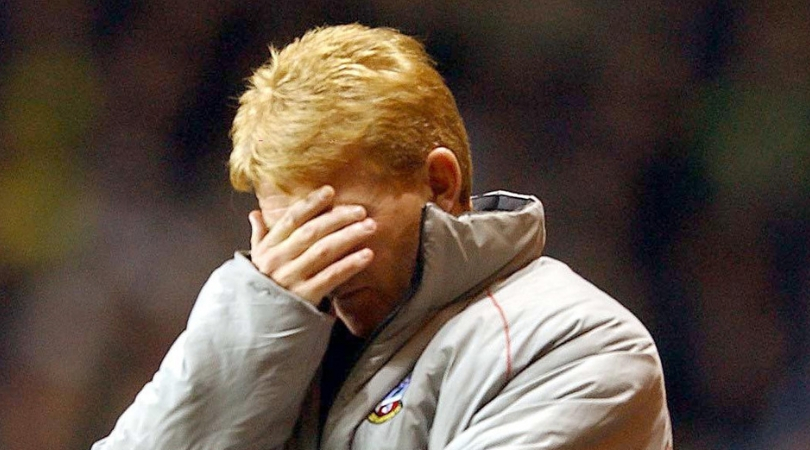
Federico Arias (Southampton)
Gordon Strachan bought Arias after Southampton’s overseas scout Terry Cooper watched him for Velez Sarsfield. Strachan was full of praise for the versatile Argentine who could "play on either flank", and Cooper was equally full of praise when revealing that Arias’ nickname at Velez was “the Torpedo” because he was “explosive over 20 metres”.
What happened next remains a mystery. Released after just six months and no first-team games, Arias holds the distinction of being Southampton’s worst South American signing – ahead of even Agustin Delgado. He returned to Velez but never rediscovered his form, embarking on a nomadic career that culminated in his slide down the Argentine football pyramid.
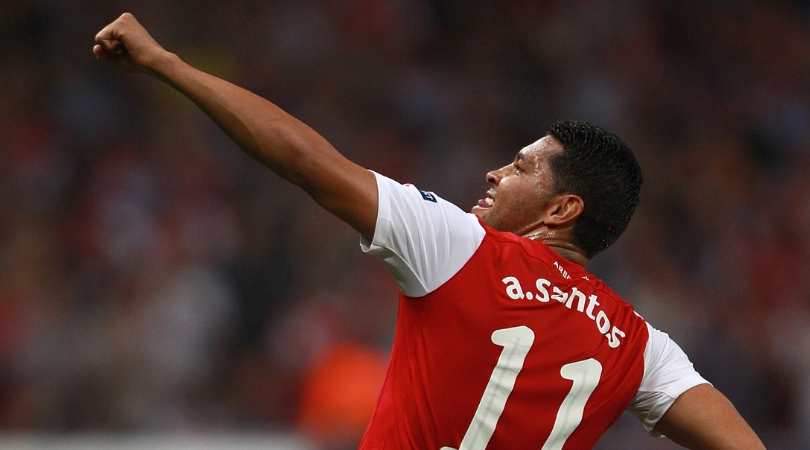
Andre Santos (Arsenal)
Santos arrived at Arsenal from Fenerbahce in the summer of 2011 with a good reputation, having become the top scoring left-back in Turkey with five goals to his name in the 2010/11 season.
However, he never won over the Emirates support as he was frequently left exposed defensively. He then made a colossal error of judgment by swapping shirts with ex-Arsenal favourite Robin van Persie at half-time against Manchester United despite his own poor performance.
Santos was sent on loan to Gremio in February 2013 and left Arsenal for good that summer to join Flamengo. Since then he has had spells in India, Switzerland and Turkey, and is currently seeing out his twilight years in his home country with Figueirense.
